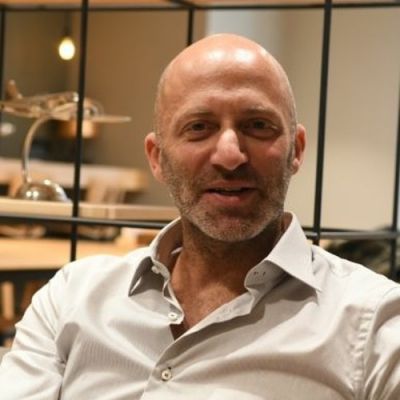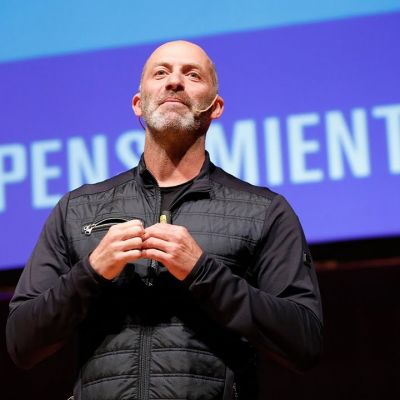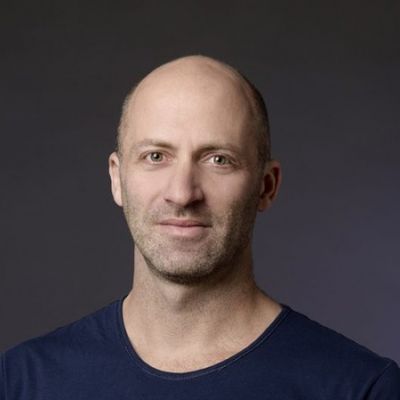Argentine scientist Estanislao Bachrach’s Wikipedia has been sought because he mentioned various human groups having undesirable emotions. Estanislao Bachrach quit Harvard because he missed Argentina. Consider some instances of neuroscience in everyday life. He coaches soccer teams to help them win, gives leadership workshops, and co-writes a column with Andy Kusnetzoff. His technique for thinking differently, accomplishing better, and living better is his trade secret. Similarly, stop producing before your body says enough:
He spent years traveling among the aristocracy. He earned a Ph.D. in molecular biology, taught at Harvard, and published research in peer-reviewed publications. Bachrach encountered a group of Buddhist monks one day at a Boston grocery. He was having a difficult day. The peelers in orange tunics never ceased smiling at him. At the time, he was working on his first book, Happy Promises and Techniques to Educate the Brain, which is now part of AgileMente. As he reached meditation, he spoke with the Dalai Lama and his henchmen. He was certain because the nuclear resonator scan of the monks’ heads showed what he had researched in the laboratory. They were quite inventive. As he rocked his oldest daughter Urna, he began to imagine the second half of the novel. He had moved to Buenos Aires.
Emmanuel Bachrach Age: How Old Is a Biologist?
Estanislao Bachrach, a biologist, does not have an official Wikipedia article. However, he was born on August 20, 1971, in Argentina’s capital, Buenos Aires. The scientist is 52 years old in 2024. Estanislao Bachrach is a full-time professor at Torcuato Di Tella Business School. He is the chairman of the Crimson Foundation, whose mission is to oversee and organize educational programs throughout Latin America that include cutting-edge scientific, medical, and technological advances.
She has been a teacher in pediatrics at Harvard Medical School since 2005. His scientific expertise and efforts are mostly focused on molecular biology and genetics, which are linked to the advancement of biological innovation, notably in health. He earned a Biology degree from Buenos Aires University’s School of Science and Mathematics in 1997 after studying biology there. In the same year, he was awarded the prestigious Bourse Docteur Ingenieur scholarship by the French National Science and Research Center (CNRS).

Bachrach was able to continue his studies at the University of Montpellier II, where he received his Ph.D. in 2001. In 2002, he started his postdoctoral studies at Boston Children’s Hospital. While doing research, he taught Genetic Engineering and Biology at Harvard to start-ups, business people, students, and men in technology. For four years in a row, he got the Certificate of Distinction in Teaching Biological Sciences. He was also nominated for the renowned Joseph R. Levenson Memorial Teaching Prize at Harvard University.
During his 10 years abroad, he co-authored three chapters for various academic publications and published eleven scientific articles in foreign journals. After returning to Argentina, he finished his Executive MBA at Torcuato Di Tella. In MBA and undergraduate programs, he teaches entrepreneurship, innovation, and biotechnology. He is a co-chair of two initiatives:
“Entrepreneurship and Competitiveness for Latin America (ECLA),” funded by Columbia Business School, and “Program for the Advancement of Biomedical Science Education in Latin America (PABSELA),” provided by Harvard Medical International. Estanislao also works as a consultant for several for-profit companies and state entities. During his two years at Di Tella, he was recognized as Best Teacher in Excellent Performance. He travels across Latin America as a visiting lecturer at Buenos Aires’ Underground Institute of Creativity.
Meet Estanislao Bachrach’s Wife and their Son
Estanislao Bachrach is divorced from his wife. They had two young kids. There is little information available regarding Estanislao’s wife and children. He must keep their identities hidden to avoid public appearances and to avoid being disturbed by anybody. Estanislao’s life changed that morning in that lab after spending half of his life studying.
He was just 33 years old, had a degree in molecular biology, and was the pride of his parents, who had supported him in his quest to become a scientist who stood out among scientists in their distinctive way. The disappointment extended beyond the personal. It meant assuming that there were instances of corruption in one of the world’s most prominent organizations. He packed his possessions and flew to Argentina.

Estanislao Bachrach Family Information
He is the son of two psychoanalysts, one of the Lacanian school and the other of the Freudian school. He is the middle boy and the other two boys’ siblings. These are undeniable facts. Then there was that frigid Boston morning in 2004 when he panicked. He was working in a lab at Harvard University. He’d been researching an incurable sickness for three years, and an incorrect publication by a colleague had aided his research.
Even though they had cautioned him, he realized the next morning that it was pointless to continue. This is why, rather than paralysis and horror, panic increasingly presents as chronic pain. Sixteen years later, Estanislao takes tea from a bright apartment on Vicente Lopez, looking out over the Rio de la Plata. The second Monday in March is a wobbly day that signals the arrival of autumn. Even though he is no longer in a lab, he remains a scientist and a biology enthusiast.
However, he found a pleasant and engaging technique for sharing information that is only accessible to a select few in teaching, writing, and private or public presentations. He is a “translator” of hard science who focuses on the brain, which we all have. He has completed his fourth novel, which will be published shortly. In it, he investigates emotions, which we all feel.




